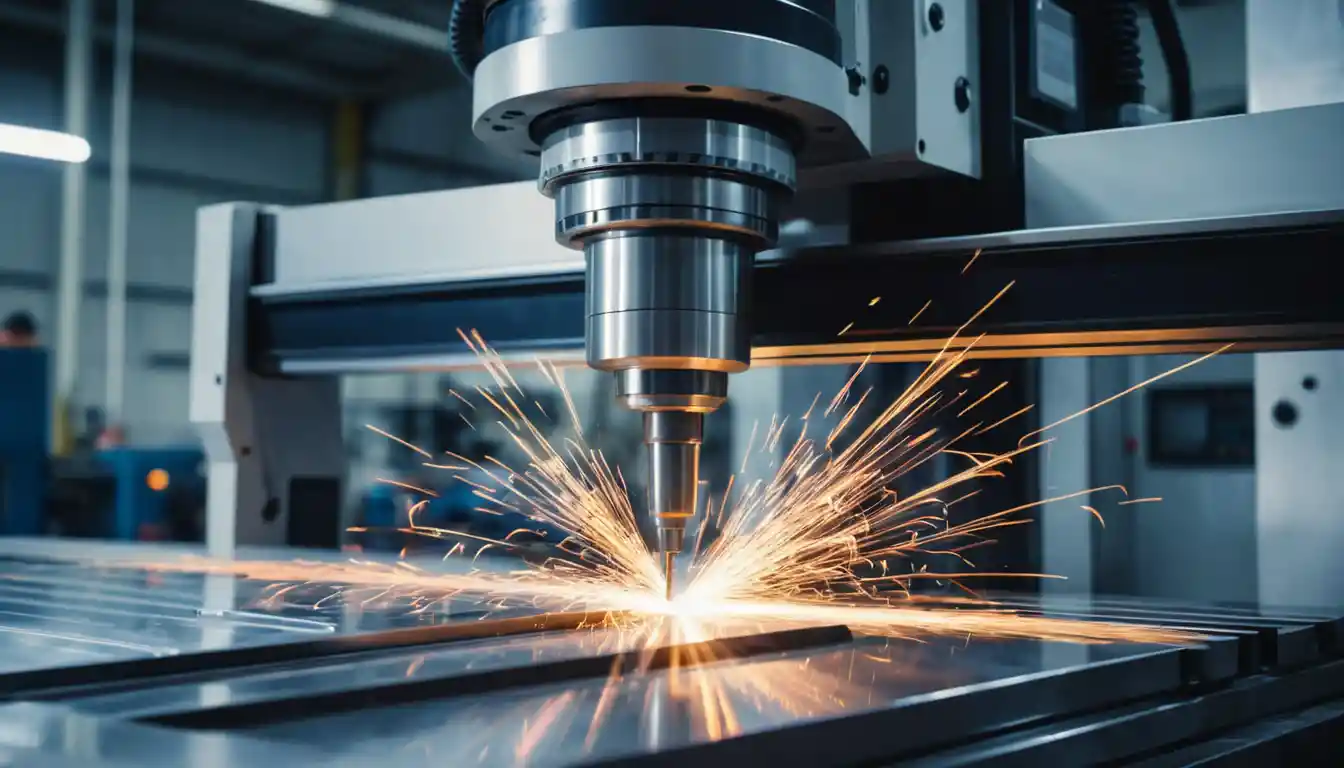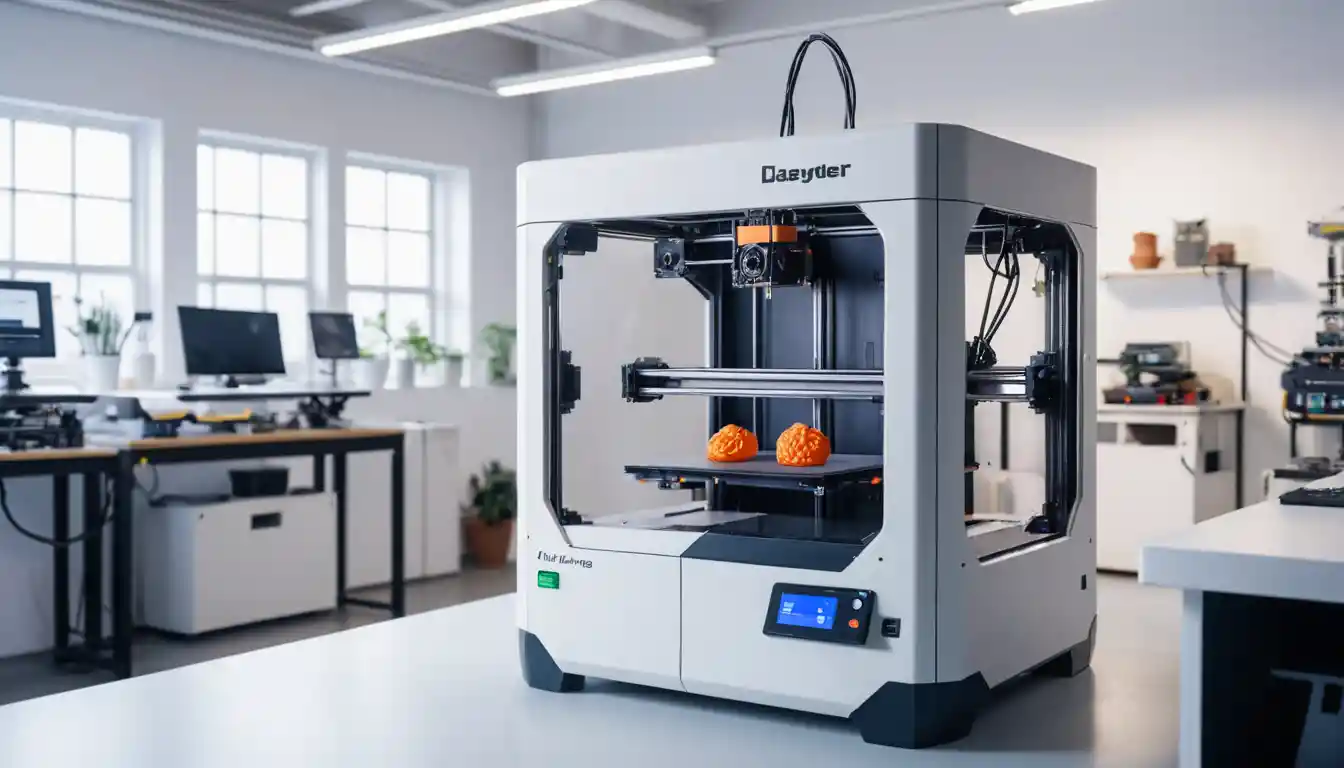What is Manufacturing Technology and How It Works

Manufacturing technology is at the core of modern industry, enabling businesses to produce goods efficiently, accurately, and on a large scale. This ever-evolving field involves the use of advanced machinery, tools, and techniques to create products. From basic machinery to sophisticated automation systems, manufacturing technology plays a vital role in shaping economies and industries around the world, including India. In this article, we will explore what manufacturing technology is, its types, examples in daily life, and its positive impacts on industries.
What is Manufacturing Technology?
At its core, manufacturing technology refers to the tools, machines, and techniques used to produce goods in large quantities. It involves everything from the design and development of products to the tools used for assembly, quality control, and even the logistics of getting those products to market. Essentially, it’s the technological backbone that supports the production process, ensuring that products are made efficiently, with high quality, and at a low cost.
Types of Manufacturing Technology
To understand manufacturing technology better, it’s important to know the various types that exist in the industry. Broadly speaking, there are four main types of manufacturing technology:
Additive Manufacturing: Also known as 3D printing, this technology creates products layer by layer, allowing for complex designs that traditional methods cannot achieve.
Subtractive Manufacturing: This involves removing material from a solid block using machines like CNC (Computer Numerical Control) machines to shape the product. It’s used in industries like aerospace and automotive.
Forming Technologies: In this type, materials are shaped without removing any material, such as through processes like molding or stamping. This is commonly used in the automotive and metalworking industries.
Casting Technologies: This involves pouring liquid material into a mold to create a desired shape, widely used in industries such as metal manufacturing.
These four types of manufacturing technologies enable companies to produce everything from small gadgets to large-scale industrial products. Whether you’re in the automotive sector or the electronics industry, these technologies make mass production a reality.

10 Examples of Manufacturing Technology
Manufacturing technology examples are found in almost every industry. Here are 10 examples that showcase how technology is transforming production:
3D Printing (Additive Manufacturing) – Used to create customized products and prototypes in industries such as healthcare and fashion.
CNC Machines (Subtractive Manufacturing) – Computer-controlled machines that precisely cut, shape, and form materials.
Robotics – Used in assembly lines, robots can perform repetitive tasks with precision, increasing productivity.
Industrial Automation – Automated systems control production processes, reducing human intervention and enhancing efficiency.
Laser Cutting – A high-precision cutting method used in industries like metalworking and electronics.
Injection Molding – A process used to produce plastic parts for various consumer products.
Welding Technologies – Advanced welding techniques like laser welding are used to join metals in industries such as automotive and aerospace.
Milling – CNC milling machines are used for creating complex shapes in materials like metal and plastic.
Casting and Forging – These methods are used to produce parts in industries like automotive and construction.
Smart Manufacturing – The use of IoT (Internet of Things) devices to collect data from production processes, allowing for real-time monitoring and optimization.
Manufacturing Technology Examples in Daily Life
Manufacturing technology isn’t limited to factories, it also appears in daily life. For example, manufacturers use 3D printing, CNC machining, and injection molding to create smartphone components. Other examples include:
Automobiles: The assembly line in car manufacturing uses robotics and automation for precision and speed.
Food Packaging: Automation technology helps in packaging food quickly and efficiently while maintaining hygiene.
Home Appliances: Many household items, such as refrigerators and washing machines, are built using injection molding and robotic assembly lines.
These are just a few of the many examples of how manufacturing technology impacts daily life, making products more affordable, accessible, and of better quality.
Positive Impacts of Manufacturing Technology
The impact of manufacturing technology on various industries is largely positive. Some of the key benefits include:
Increased Efficiency: Manufacturing technology enables faster production times and reduces human error, resulting in higher output at a lower cost.
Improved Product Quality: Advanced technology allows manufacturers to produce items with greater precision and fewer defects, resulting in better quality.
Cost Reduction: Automation and robotics help businesses reduce labor costs while improving production speed and accuracy.
Sustainability: Many modern manufacturing technologies help reduce waste, minimize energy consumption, and promote the use of recyclable materials.
What is Construction Technology?
While similar to manufacturing technology, construction technology focuses more on the techniques and tools used in building infrastructure. This includes everything from machinery used in construction to the materials and methods used to construct buildings, bridges, and roads. In recent years, construction technology has embraced innovations like 3D printing for building structures and automation for excavation and construction processes.
The Role of Manufacturing Technology Engineering
Manufacturing technology engineering combines mechanical engineering, electrical engineering, and computer science to develop the systems that drive modern production. Engineers in this field design and implement the machines, robots, and software that power manufacturing processes. These professionals are crucial to the success of industries, ensuring that manufacturing systems run smoothly, efficiently, and cost-effectively.

Frequently Asked Question
What is manufacturing technology?
Manufacturing technology refers to the tools, machines, and processes used to produce goods on a large scale. It includes techniques like 3D printing, CNC machining, robotics, and automation, which help improve production efficiency, reduce costs, and enhance product quality. Manufacturing technology plays a crucial role in industries such as automotive, electronics, and construction.
What are the different types of manufacturing technology?
There are four main types of manufacturing technology: additive manufacturing (3D printing), subtractive manufacturing (CNC machines), forming technologies (molding and stamping), and casting technologies (pouring liquid into molds). These methods allow manufacturers to create products in various shapes and sizes with precision and efficiency.
How does manufacturing technology impact daily life?
Manufacturing technology impacts our daily lives in numerous ways. Household appliances, automobiles, and food packaging also rely on manufacturing technologies to produce high-quality, affordable products that meet consumer demands.
What is the role of manufacturing technology in industrial growth?
Manufacturing technology plays a pivotal role in driving industrial growth by increasing production efficiency, reducing waste, and improving product quality. It helps industries meet the demands of global markets, innovate new products, and stay competitive. Technologies such as robotics, automation, and smart manufacturing have revolutionized industries like automotive, electronics, and textiles.
What are the positive impacts of manufacturing technology?
The positive impacts of manufacturing technology include improved efficiency, reduced labor costs, enhanced product quality, and greater sustainability. Advanced technologies allow businesses to produce goods faster and with fewer defects, lower production costs, and use fewer resources, contributing to more sustainable and cost-effective manufacturing processes.
Conclusion
In conclusion, manufacturing technology is a critical component of modern industrial systems, impacting everything from daily life to large-scale production in sectors such as automotive, electronics, and construction. Whether it’s additive manufacturing, robotics, or smart automation, these technologies are driving efficiency, improving product quality, and offering new opportunities for growth in industries worldwide, including in India.
As industries continue to evolve, it’s important to keep an eye on the latest trends and innovations in manufacturing technology, as they will play a significant role in shaping the future of global production. For anyone interested in diving deeper into this field, there are many manufacturing technology PDF resources available online, which provide more detailed insights into the technologies mentioned.





